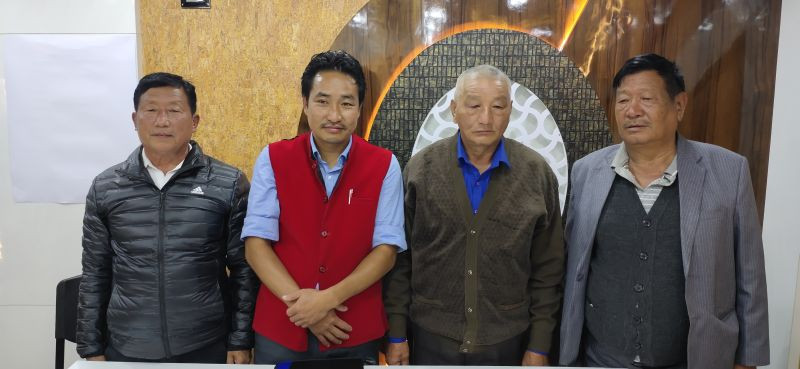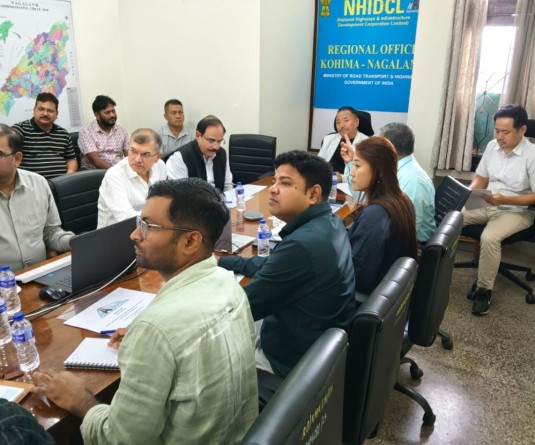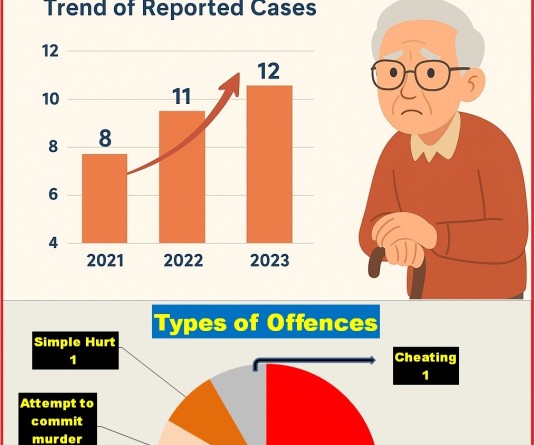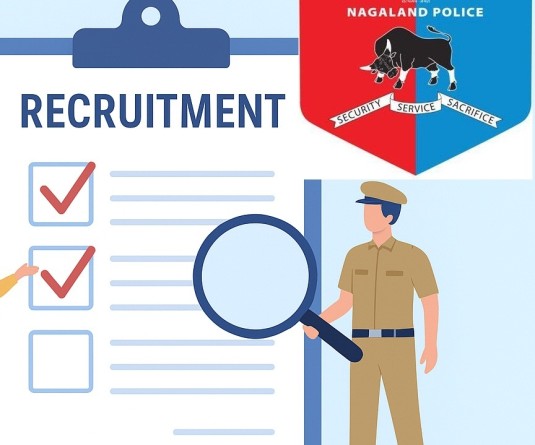Caption: Members of the Nagaland DB Association during a press conference at Kohima on November 22. (Morung Photo)

Morung Express News
Kohima | November 22
“Customary Courts in Nagaland means safeguarding the rights, culture and traditions of the Nagas inter alia the premier status accorded to the state of Nagaland by Article 371 (A),” the Nagaland DB Association said on Monday.
The statement comes against the backdrop of a representation submitted to the Nagaland State Government for constitution of customary courts in Nagaland on October 27.
Addressing media persons at Hotel Crescent, Kohima, the association asserted that having customary courts in the State is the identity of the Nagas, without which the rights and identity of the Nagas would be lost.
Justifying the need of customary courts, members of the association said “Nagas are governed by the customs and traditions which are acceptable standards of behaviour acknowledged by the Nagas. Generally, customary laws are not written, but transmitted through oral traditions and practices. These customs and traditions were passed on from one generation to the next, eventually evolving into customary laws that are enforced by the community. Customary laws are very central and intrinsic to the very identity of the Nagas.”
NDBA General Secretary, R Kemerio Yanthan said since, Nagaland state was an offshoot of the very foundation of unique customs and history, the idea of having unique courts should be a priority to preserve the age-old practices of the Nagas.
Besides, he maintained that a permanent department to oversee the affairs of the Nagas as per the customs and traditions is felt altogether more important for the state of Nagaland.
“Nagas feel so dear and close to the customs and traditions upon which the state of Nagaland was created” said Yanthan and added that besides the village court at the lower level, the Customary Courts as an agency/institution at the block, division and district level of the government are responsible in safeguarding the unique customs and traditions of the Nagas.
Giving a brief background on how Dobashis were initially established during the British Raj in 1879 in the then Naga hills by T Mitchell and H Hutton—as interpreters and Supervisors, he said the Dobashis were entrusted to function and execute the duties of the tribal courts on experimental basis in the year 1946-49 in regard with the administration and delivering justice to disputing people.
On successful experimentation, the tribal court was named to Dobashis courts in 1950. Subsequently the administration and judiciary under the British Empire in the Naga Hills was simplified by appointing the GBs and DBs.
Yanthan further cited remarks made by the then Chief Justice of the Gauhati High Court, D Pathak, during his visit to Mokokchung court in 1982, and the then Chief Justice of the Supreme Court, YV Chandrachud in 1984 who were stated to be very impressed by the performance of the Dobashis in dispensing disputes in accordance with the prevailing customary laws.
Yanthan maintained that though not formally recognised by the government, the Customary Courts had been adjudicating cases of customary nature and it is the only court in the state which dispenses justice in accordance with the customs and traditions of the Nagas.
He further noted that Customary Courts are people friendly and accessible, coupled with low fees where judgments passed are quick and with integrity.
Besides, Yanthan added that “swearing of oath is the final and highest form for settlement of any cases. The court decides cases of customary nature based on merit and truth.” He also cited how land disputes have been resolved through Customary Courts.
He further claimed that “in the absence of Customary Courts in Nagaland, the essence embedded in our customs and traditions would steadily vanish.”






